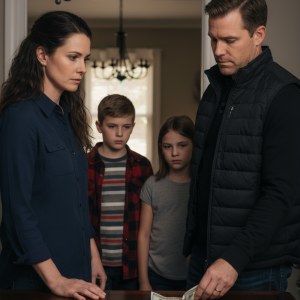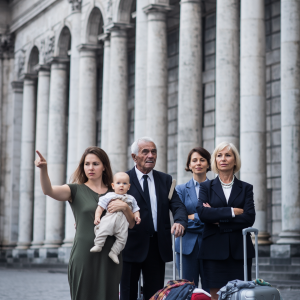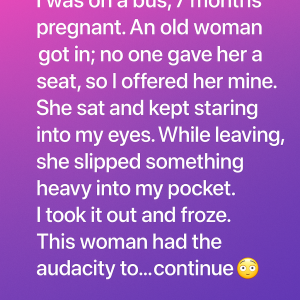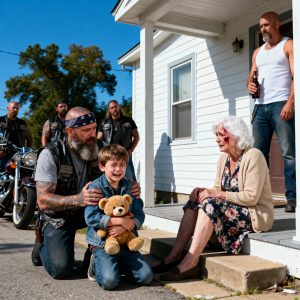When Valentina married Artyom at twenty-two, she believed she’d found her forever. She poured herself into the marriage — cleaning, cooking, molding herself into the wife she thought he wanted.
But from the beginning, her mother-in-law’s eyes said it all: “You’re not good enough for my son.” Artyom, raised to obey her every word, never challenged that judgment.
When Valya fell ill, she told herself it was exhaustion. But the doctor’s quiet shake of the head told a different story. That night she cried into her pillow, hiding the truth from Artyom.
Then one day, his mother leaned in close and whispered: “You’re young. You have your whole life ahead. Don’t chain yourself to a burden. Take her somewhere remote, where no one will talk… and then start over.”
He drove her deep into the countryside to live with Aunt Dunya.
“It’s peaceful here,” he said, avoiding her eyes.
“Will you come back?” she asked.
A silent nod was his only answer. By morning, he was gone.
Death didn’t come for her. Instead, a young paramedic with kind eyes began stopping by. He brought medicine, stayed through snowstorms, and never asked for thanks.
Three months later, she could stand. Six months later, she walked to the village store. Neighbors stared.
“Are you coming back to life, Valya?” they asked.
“I’m trying,” she said softly.
A year passed before Artyom’s car rolled into the village. He found her on the porch, cheeks flushed, sipping tea.
“You… you’re alive?” he stammered.
“Disappointed?” she asked.
When he claimed he’d thought she was gone, she cut him off: “That’s what you wanted, wasn’t it?”
Then she handed him a folder. “Your inheritance? It’s going to the man who saved my life. Take your papers and go.”
A week later, a notary arrived: her estranged father had died, leaving her an apartment and a substantial bank account.
Two days later, she left for the city — no longer the woman abandoned to die in the cold, but one ready to decide her own fate.
At the market months later, she saw Artyom with a pregnant woman.
“You didn’t expect me to still be alive?” she asked calmly.
He muttered to his companion, “Just an old friend.”
Valya smiled. “Yes… one you buried long ago.”
Ilya, the paramedic, began visiting in the city. He cooked, fixed things, and sometimes just sat beside her in silence.
One winter evening, she told him, “For the first time, I feel alive.”
He smiled. “Sometimes, you have to suffocate before you learn to breathe.”
A month later, Valya learned she was pregnant. Ilya embraced her. “We’ll handle it. Together.”
But then came the envelope — a warning to “check if Lisa is truly his” and to “look into Ilya’s past.”
That night, she searched his office. Medical records. Bank statements. A copy of her father’s will. He had known everything about her — from the start.
When confronted, he admitted it: “I was sent to get close to you. But I stayed because I wanted to. I changed… for you.”
Soon after, a stranger summoned her to a park: her father’s former partner.
“He left you more than property,” the man said. “And now dangerous people want it.”
Three days later, Valya published everything in the press.
Standing by the window, she watched Lisa draw a sun. “This is for you, Mommy,” her daughter said.
Ilya returned. “I won’t make excuses. But if you’ll let me, I’ll stay — on one condition.”
“No more lies,” she said. “Even if the truth is unbearable.”
He nodded. Six months later, the case was closed.
Valya later wrote: “They tried to kill me with cold, lies, and abandonment. But I survived. In your darkest hour, wait — the sun always returns.”





